People often ask our team what the benefits of consolidating investment accounts are, if it is better, and when might be the best time to do so. Each of these are excellent questions that depends on the client, their family’s needs, financial planning objectives, and the desire to seek a collaborative and cohesive management approach.
Here at BentOak Capital, we are a planning first firm where we strongly recommend beginning each relationship with a thorough and comprehensive plan. This includes reviewing the underlying accounts structures, allocations, and investments, but also factors in other topics to determine optimal recommendations. These can include areas such as risk management/insurance, retirement income, tax planning, estate planning, and charitable giving to name a few. By touching on each, and having an in-depth conversation on a client’s needs, goals, and objectives, we can then make appropriate recommendations on the investment accounts and provide advantages or disadvantages on consolidating investments.
Account Types
An area where most questions arise tends to do with qualified or retirement accounts. This can include, but not be limited to, retirement savings accounts from previous employers (401k, 403b, 457, etc.), Roth IRA accounts, IRA Rollover accounts, and more. A primary driver behind consolidating these is to manage the investments for each, so they are working together, and to simplify future required minimum distributions (RMD) calculations and withdrawals.
As a reminder, RMDs (Required Minimum Distributions) are calculated based on the prior year end (December 31st) value. If you have accounts at multiple institutions, it is imperative that you verify that the proper amounts are withdrawn from the collective account type. If you were to consolidate the accounts, there would be only one calculation, and then the distribution can then be taken in a manner that best suits your needs. With the changes to RMDs thanks to the Secure Act 1.0 and 2.0, those that are approaching their early 70s now have a longer period to let these accounts grow before distributions are required. This is helpful for future growth and creates an opportunity to explore Roth conversions for a longer period. (We have touched on this topic in our previous posts “Tax Season Is Every Season” and “How We Learned To Stop Worrying And Love The 1040”)
Roth conversions can be set up across custodians but are more streamlined and efficient if the accounts are held at the same custodian. Receiving tax documents from the same custodian, especially in the year a Roth conversion occurs, is helpful just so you do not have to track these down from different websites or receive mail from multiple custodians.
Investment Options
Over the past 20 years there has been tremendous growth in the types of securities offered. No longer limited to traditional stocks, bonds, and mutual funds, there are now various exchange traded products that track a variety of different indexes. With the increased efficiencies in trading technology, along with lower trading costs, we can now manage taxable accounts more efficiently. With volatility in the market, we can sell positions to capture the loss and utilize this in the future to offset gains within the same taxable account. This strategy can also help offset other capital gains outside of the investment account (e.g., sale of land, businesses, outside investments, etc.). The proceeds from the sale can then be invested in a similar investment to maintain the desired exposure in the markets. If your taxable accounts are consolidated, there is less possibility for a wash sale to occur because the investment manager can see all of the positions and transactions.
Studies have shown that the largest driver of an investor’s portfolio performance is attributed to the allocation of the respective asset classes. Managing the asset allocation across different custodians is feasible, but more tactical or opportunistic changes can be made if the overall picture is visible when consolidated with one manager.
Another topic that is typically not that exciting but has gained a tremendous amount of attention lately is cash and cash equivalents. With yields at levels, we have not seen in about 15 years, many individuals are looking to park cash in something that is more conservative and paying more than the traditional checking or savings account. As discussed, in our recent blog , there are several viable options that clients need to consider, whether that be a money market, CD (Certificate of Deposit), or another form of cash equivalent. Again, a manager with access to manage and oversee all a client’s accounts can manage them accordingly and maintain appropriate exposures across the portfolio.
Estate Considerations
One potential consideration many people do not think about is how consolidating accounts at the end of life can reduce emotional and cognitive stress on loved ones left behind. Surviving spouses in particular can benefit from the simplification inherent in having one investment portfolio manager. We have blogged in the past about managing an inheritance and the complexities that need to be considered by heirs. A real financial planner can help surviving spouses and heirs understand what their new financial situation is, what the possibilities are, and give guidance on ways to move forward.
As you can see from the different topics mentioned above, there are a number of items that must be taken into account when managing the overall portfolio. Creating a comprehensive plan is very helpful in piecing together a thorough review and provides a holistic overview and snapshot of everything that many individuals have never seen. In addition, it provides us as advisors with the information needed to craft more accurate recommendations for investments and planning topics. If you have any questions or know someone who might benefit from a conversation from an advisor, please contact us to set up a meeting.
The opinions voiced in this material are for general information only and are not intended to provide specific advice or recommendations for any individual. All performance referenced is historical and is no guarantee of future results. All indices are unmanaged and may not be invested into directly.







